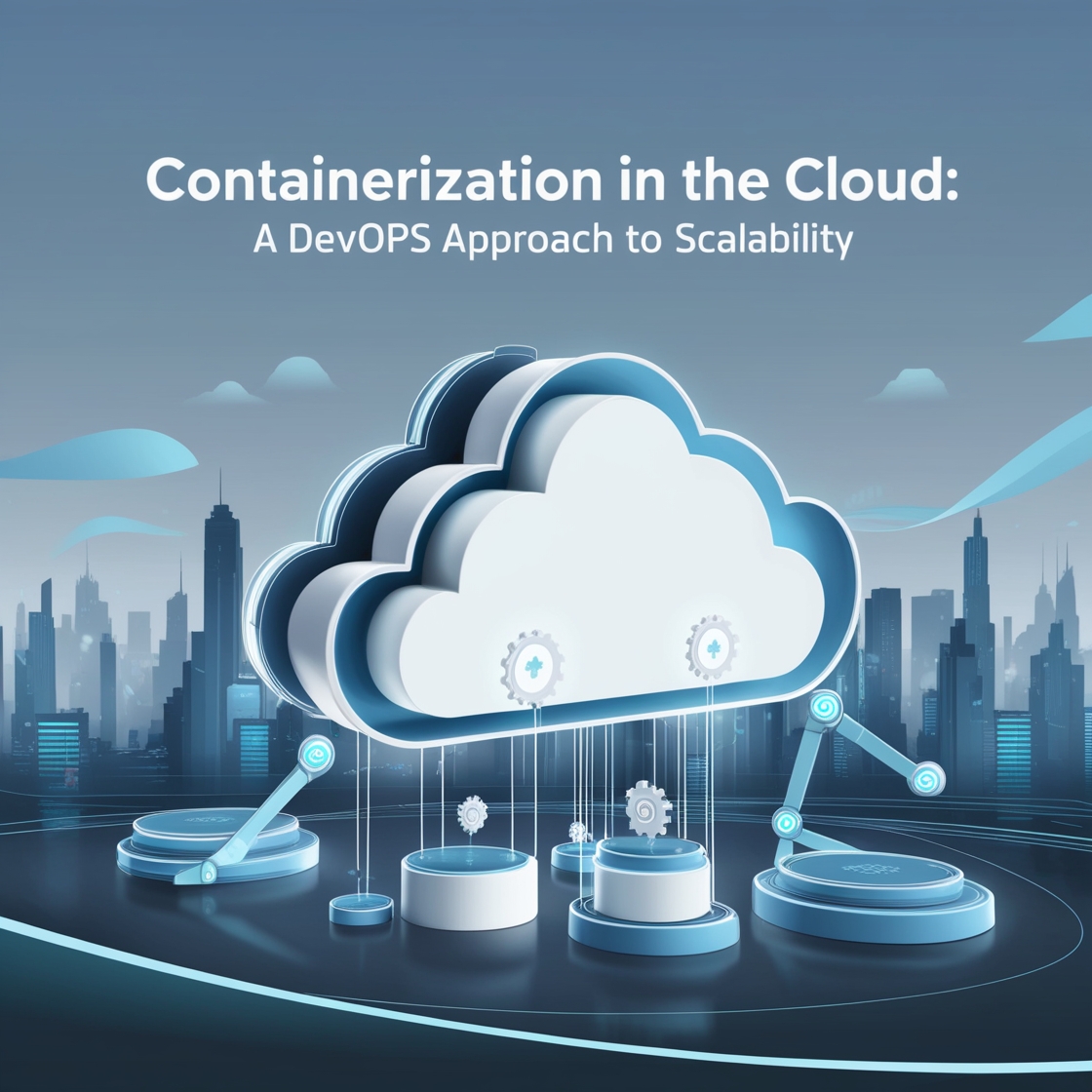Introduction
In today’s fast-evolving tech landscape, achieving scalability is no longer just an advantage—it’s a necessity. One of the most effective ways to scale applications is through containerization in the cloud, paired with a robust DevOps approach. So, what exactly is containerization, and why has it become a go-to strategy for developers and businesses alike? Let’s dive into this exciting world.
Understanding Containerization
What is Containerization?
Containerization is a method of packaging software so that the application, along with its dependencies, can run consistently across multiple computing environments. Think of it as a self-contained box where everything your app needs is bundled together.
How Containers Differ from Virtual Machines (VMs)?
While VMs virtualize hardware to run multiple OS instances on a single physical machine, containers virtualize the OS, allowing multiple applications to share the same system resources efficiently. Containers are lightweight, faster to start, and easier to manage compared to VMs.
Key Components of a Containerized Environment
- Container Runtime: The engine that runs the container, such as Docker or containerd.
- Images: Blueprints for your containers, storing the code and dependencies.
- Orchestration Tools: Platforms like Kubernetes that manage containers in production.
The Cloud Meets Containers
Why the Cloud is the Ideal Home for Containers
The cloud provides a scalable and flexible infrastructure where containerized applications thrive. It removes the need for extensive on-premise resources, making scaling as easy as clicking a button (or running a command).
Benefits of Cloud-Native Containerization
- Cost-Efficiency: Pay only for what you use.
- Enhanced Scalability: Spin up or down instances automatically.
- Global Reach: Deploy applications closer to users worldwide.
DevOps and Scalability
What is DevOps?
DevOps is a culture and practice that unifies development and operations teams to improve the speed and quality of software delivery. It emphasizes automation, collaboration, and continuous feedback.
The Connection Between DevOps and Containers
Containers are an integral part of the DevOps toolkit. They make CI/CD pipelines more efficient, ensure environment consistency, and simplify deployments.
Scalability as a Key Pillar in DevOps
Scaling is seamless with containers. By abstracting applications from the underlying infrastructure, teams can focus on scaling services based on demand rather than worrying about hardware limitations.
Tools of the Trade
Popular Containerization Tools
- Docker: The pioneer of modern containerization.
- Podman: A rising competitor to Docker, offering a daemon-less experience.
Orchestration Platforms
- Kubernetes: The king of container orchestration, managing deployments, scaling, and more.
- AWS ECS/EKS and Google GKE: Cloud-native orchestration platforms tailored for their ecosystems.
Implementing Containerization in a DevOps Framework
Key Considerations
- Infrastructure Readiness: Ensure your cloud environment is container-friendly.
- Team Expertise: Train your DevOps team in container technologies.
- Monitoring and Logging: Use tools like Prometheus and Grafana for visibility.
Best Practices
- Build lightweight, secure container images.
- Automate deployments with CI/CD pipelines.
- Use version control for container images.
Challenges of Containerization in the Cloud
Security Concerns
Containers share the host OS kernel, making them susceptible to security risks if not properly isolated.
Networking and Data Persistence
Managing communication between containers and persistent storage can be tricky without proper tools.
Resource Management
While containers are lightweight, managing their resource allocation in large-scale environments requires fine-tuning.
Real-World Applications
How Companies are Using Containerization
Major players like Netflix and Spotify leverage containers to run microservices at scale. These companies rely on container orchestration to deliver seamless user experiences.
Case Study: Successful Implementation in the Cloud
A mid-sized e-commerce company used Kubernetes and AWS to handle seasonal traffic spikes, reducing costs by 30% and increasing uptime.
Future of Containerization in the Cloud
The future looks bright. With advancements in serverless computing and AI-driven orchestration, containers will become even more efficient. Expect tighter integrations with machine learning workflows, allowing smarter scaling decisions.
Conclusion
Containerization in the cloud is revolutionizing how businesses scale their applications. Paired with DevOps, it’s a match made in tech heaven. By leveraging containers, you can achieve faster deployments, greater scalability, and cost savings—all without breaking a sweat.
FAQs
- What are the advantages of containerization in the cloud?
It offers cost-efficiency, enhanced scalability, and global accessibility. - How does Kubernetes help in container orchestration?
Kubernetes automates deployment, scaling, and management of containerized applications. - Can small businesses benefit from containerization?
Absolutely! Containers lower infrastructure costs and simplify deployments, making them ideal for SMBs. - Is containerization secure for sensitive data?
Yes, with proper isolation and security measures, containers can safely handle sensitive data. - What skills are required to implement containerization?
Knowledge of DevOps, container tools (e.g., Docker), and orchestration platforms like Kubernetes is essential.
